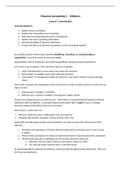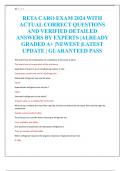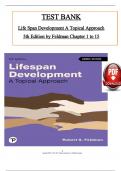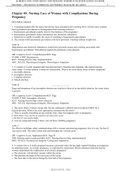College aantekeningen
College aantekeningen Finance 1 for Business (6012B0422Y) Financial Accounting with International Financial Reporting Standards, ISBN:
- Instelling
- Universiteit Van Amsterdam (UvA)
College aantekeningen Finance 1 for Business (6012B0422Y) Financial Accounting with International Financial Reporting Standards, ISBN: 4308 Aantekeningen zien toen op de eerste 5 colleges, welke onderdeel zijn van de mid-term.
[Meer zien]














